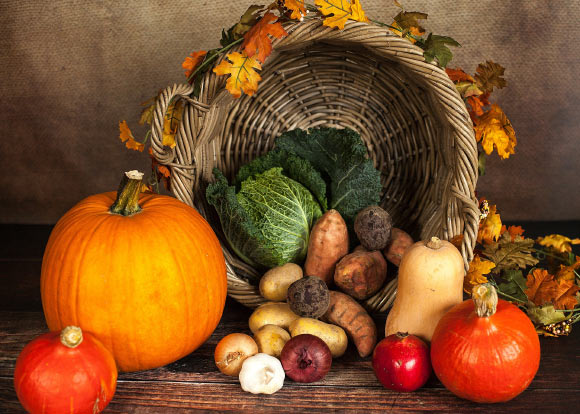Dietary prebiotics can improve sleep and boost stress resilience by influencing gut bacteria and metabolites (biologically active molecules) they produce, according to a new study in rats published in the journal Scientific Reports.

Ingestion of a prebiotic diet improves undisturbed NREM sleep, promotes REM sleep rebound after stress exposure, and prevents stress-induced reductions in gut microbial alpha diversity. Image credit: Sabrina Ripke.
Most people are familiar with probiotics, friendly bacteria present in fermented foods like yogurt and sauerkraut.
More recently, scientists have taken an interest in prebiotics — dietary compounds that humans cannot digest but serve as nourishment for our microbiome, or the trillions of bacteria residing within us.
While not all fibers are prebiotics, many fibrous foods like leeks, artichokes, onions and certain whole grains are rich in them.
“The biggest takeaway here is that this type of fiber is not just there to bulk up the stool and pass through the digestive system,” said Dr. Robert Thompson, a postdoctoral researcher in the Department of Integrative Physiology at the University of Colorado Boulder.
“It is feeding the bugs that live in our gut and creating a symbiotic relationship with us that has powerful effects on our brain and behavior.”
For the study, Dr. Thompson and colleagues started adolescent male rats on either standard chow or chow infused with prebiotics and tracked an array of physiological measures before and after the rats were stressed.
As reported in the team’s previous study, those on the prebiotic diet spent more time in restorative non-rapid-eye-movement (NREM) sleep.
After stress, they also spent more time in rapid-eye-movement (REM) sleep, which is believed to be critical for recovery from stress.
While rats eating standard chow saw an unhealthy flattening of the body’s natural temperature fluctuations and a drop in healthy diversity of their gut microbiome after stress, those fed prebiotics were buffered from these effects.
The new study sheds light on how prebiotics can help bust stress.
“We know that this combination of dietary fibers helps promote stress robustness and good sleep and protects the gut microbiome from disruption,” said Professor Monika Fleshner, director of the Stress Physiology Laboratory at the University of Colorado Boulder.
“With this new study, we wanted to try to identify the signal.”
Using a technology called mass spectrometry to analyze the rats’ fecal samples, the researchers measured metabolites.
They found rats on the prebiotic diet had a substantially different ‘metabolome,’ or make-up of metabolites. It was higher in dozens of them, including fatty acids, sugars and steroids which may, via gut-brain signaling pathways, influence behavior. It also looked different after stress.
For instance, the rats on the standard chow diet saw dramatic spikes in allopregnanolone precursor and ketone steroid, potentially sleep-disrupting metabolites, while those on the prebiotic diet saw no such spike.
“Our results reveal novel signals that come from gut microbes that may modulate stress physiology and sleep,” Professor Fleshner said.
While prebiotic dietary fiber is certainly healthy, it’s uncertain whether just loading up on foods rich in it can promote sleep.
The rats were fed very high doses of four specific prebiotics, including: galactooligosaccharides, which are present in lentils and cabbage; polydextrose (PDX) an FDA-approved food additive often used as a sweetener; lactoferrin, found in breast milk; and milk fat globular protein, abundant in dairy products.
“You’d probably have to eat a whole lot of lentils and cabbage to see any effect,” Dr. Thompson said.
“Prebiotic supplements already abound on natural food store shelves. But said it’s too soon to say whether a supplement or drug containing such compounds would be safe and effective for everyone. Depending on what their microbial make-up is, different people might respond differently.”
“These are powerful molecules with real neuroactive effects and people need to exercise some caution.”
_____
R.S. Thompson et al. 2020. Dietary prebiotics alter novel microbial dependent fecal metabolites that improve sleep. Sci Rep 10, 3848; doi: 10.1038/s41598-020-60679-y







